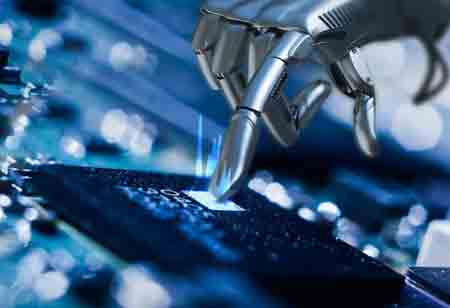THANK YOU FOR SUBSCRIBING
How AI-based Drones Revolutionize Our Life?
Drones are unmanned aerial vehicles that can be utilized for a wide range of tasks. These gadgets were initially controlled manually and remotely.

By
Apac CIOOutlook | Monday, October 04, 2021
Stay ahead of the industry with exclusive feature stories on the top companies, expert insights and the latest news delivered straight to your inbox. Subscribe today.
When AI is integrated into drone systems, it can assess operator efficiency and gather data on operational circumstances. This information can subsequently be used to create operator training programs.
Fremont, CA: Drones are unmanned aerial vehicles that can be utilized for a wide range of tasks. These gadgets were initially controlled manually and remotely. However, drones now frequently include artificial intelligence, which automates some or all functions.
Thanks to AI, drone providers can collect and implement visual and environmental data using data from sensors linked to the drone. This information enables autonomous or assisted flight, which simplifies operations and improves accessibility. As a result, drones have become a part of the intelligent mobility services available commercially to businesses and consumers.
Here are two benefits of AI-based drones:
Real-Time Data
AI enables in-flight processing of real-time data streams. This gives operators and internal systems constant feedback, allowing for autonomous flight operations corrections or complete automation. When drones are used to analyze unsafe regions for humans, applying data in real-time is beneficial. Drones with artificial intelligence can adapt to environments that humans cannot. When assessing buildings, for example, making high-speed calculations to account for air currents. It can also help operators catch information that would otherwise go unnoticed by humans, like minor motions in dark locations.
Improving Human Operation
When AI is integrated into drone systems, it can be used to assess operator efficiency and gather data on operational circumstances. This information can subsequently be used to create operator training programs. Drones can be operated more safely and effectively if the characteristics that make for skilled operation are identified. Furthermore, by simulating harsh conditions, AI algorithms can train operators to minimize drone damage or equipment loss, increasing the return on investment.





